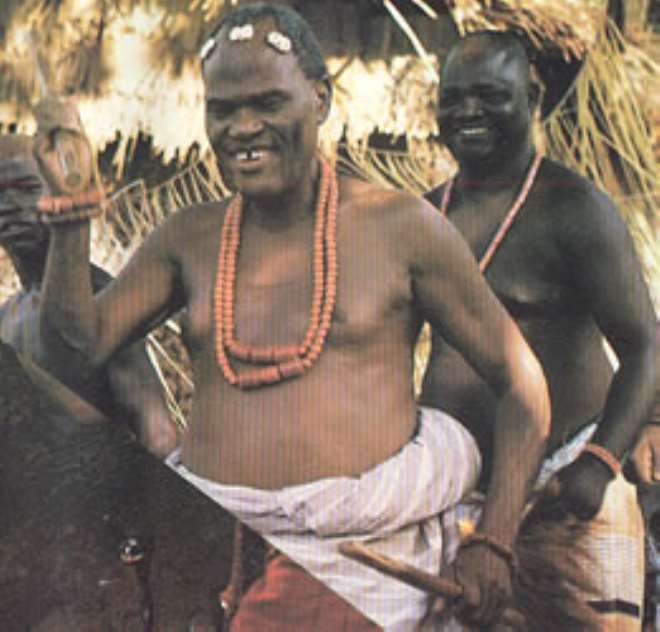Nollywood and the new factor called premiere
IT is no longer news that the nose-diving factor has come the way of the massive production in Nollywood in the past four years. But beyond the scornful perspective that we may want to ascribe to the situation, have we stopped to imagine that it could be the sign of better days or what could be a turning point for the 2nd largest producers of home video in the world? Has it occurred to us for once that the charlatans or illiterate traders that we often ascribe the industry may have just done their bit as pathfinders? Perhaps one day, their names will be written in gold for having offered themselves as useful sacrifices for an emerging new industry that may soon be rubbing shoulders with the filmmakers from Hollywood and Bollywood (the American and Indian industries respectively). Yes, the cinema industry has been there since the days of Herbert Ogunde, Moses Oliaya, Ola Balogun, and Eddie Ugboma to mention a few; the struggle to enthrone the Nigerian film industry in the comity of film making nations of the word is as a result of the Nollywood factor.
Like the history of the name Nigeria, given by a foreigner, another foreign journalist, Nick Moran, it was who came to Nigeria out of curiosity that gave the industry the name Nollywood, amazed at how an industry does a movie in just one week and end up churning out releases. Such was the exposure that Nollywood gave the country and although they may look derogatory, they are the semblance of the excesses of a sinful man that popularise him among the preachers for redemption.
Yes! We are not churning out movies as we used to do, partly because piracy is dealing a hard blow on producers and also because even the local viewers are wiser now. They are quick to criticise a bad movie. Then of course, there is the award factor. Top on the project in Nigeria is the prestigious Africa Movie Academy Awards (AMAA) that runs a list of respected professionals as jury from across the world.
And perhaps most recently is the new vogue of press preview and movie premiere, one of the traditions of old. And to imagine that every serious filmmaker is going through the pain of either shooting in High Definition format or 33mm (Celluloid) is an evidence of gradual journey toward the cinema culture.
Apart from the fact that as it is with book launch where an author tries to make as much for the production effort of his book, a filmmaker's choice of premiere also guarantees, to some extent, the recoup of his expenses. But beyond this, it is a factor that is fast separating the 'men' from the 'boys'. Today, unlike when it started, Silverbird Cinemas shows Nigerian movies along side the foreign movies such that Roy Murray-Bruce, in a recent interview predicted a sure future for Nollywood as regards attaining the cinema status in full. Suffice to say that quality is ironically cheaper or is it that it brings better returns? Because, indeed taking a film round the cinemas before releasing it into the general market is another way of checkmating incidences of piracy.
Silverbird Cinemas recorded that in just three weeks of releasing Stephanie Okereke's movie Through the Glass grossed a whooping N10 million in the Nigerian Box Office. We cannot expect less from Kunle Afolayan's The Figurine, or Emem Isong's The Tenant, or Adonai's Nnenda, or Kelani's Arugba, and a host of others. That is the new spirit and it is only a matter of time before the whole talk about Nollywood being an industry of charlatans will be a thing of the past.
And perhaps then, the noise about re-branding Nigeria with forward-looking stories will stop because as it is, we may not be able to exhaust story ideas from our numerous culturally vibrant indigenous ethnic groups that are already making positive influences from around the world. Only then will our offer of a broad spectrum of entertainment potentials in music, dance, drama, sports, festivals, carnivals, regattas, beauty pageants, fashion shows, circuses and positive lifestyles reflect the rich cultural mix and diversity of Nigeria as the world's largest black nation.
Latest News
-
 "If You're For Me, I Am For You" - Cubana Chief P
"If You're For Me, I Am For You" - Cubana Chief P -
 "3 Days To Go" - Femi Adebayo Urges Fans To Get S
"3 Days To Go" - Femi Adebayo Urges Fans To Get S -
 "Stop Asking Me Questions About Speed Darlington"
"Stop Asking Me Questions About Speed Darlington" -
 "Benue Is The Most Underdeveloped State I've Ever
"Benue Is The Most Underdeveloped State I've Ever -
 Stan Alieke Urges Young Professionals To Take Lin
Stan Alieke Urges Young Professionals To Take Lin -
 Chizzy Alichi Teases Fans With Baby Reveal, Promot
Chizzy Alichi Teases Fans With Baby Reveal, Promot -
 "I'm Not Wearing Makeup From July 4th Till Decemb
"I'm Not Wearing Makeup From July 4th Till Decemb -
 "Stop The Challenge Of Mocking Kids With Down Syn
"Stop The Challenge Of Mocking Kids With Down Syn -
 Regina Daniels Celebrates Sons As They Mark Birthd
Regina Daniels Celebrates Sons As They Mark Birthd -
 Speed Darlington Threatens To Sue NAPTIP For Defam
Speed Darlington Threatens To Sue NAPTIP For Defam














